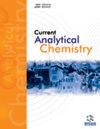研究尿素硫酸锌-苯丙氨酸对暴露于 pH-4 硫酸中的低碳钢的缓蚀效果
IF 1.7
4区 化学
Q3 CHEMISTRY, ANALYTICAL
引用次数: 0
摘要
背景:低碳钢的腐蚀对材料和稳定性都有风险。使用缓蚀剂是一种经济有效的低碳钢腐蚀改性方法。富含电子的有机缓蚀剂可能具有出色的防腐蚀能力。本研究旨在评估尿素、硫酸锌和具有高电子密度方法的 L-苯丙氨酸混合物的缓蚀效果:使用极化、交流阻抗原子力显微镜、紫外线和荧光等不同的重量测量法和常规技术来检测研究数据。研究结果重力测量结果显示,该组合的有效抑制率为 93%。阻抗测试结果证明,吸附在金属表面的抑制剂混合物能有效防止腐蚀。结论同样,根据极化测量结果,该抑制剂表现出混合型性能,具有显著的阴极活性。紫外线、荧光和原子力显微镜研究结果表明,由于抑制剂分子附着在金属表面并减少,MS 腐蚀被抑制。本文章由计算机程序翻译,如有差异,请以英文原文为准。
Investigating the Effects of Urea-Zinc Sulfate-L Phenylalanine on the Corrosion Inhibition of Mild Steel Exposed to pH-4 Sulfuric Acid
Background: Corrosion of mild steel is a risk to material and stability. The practice of corrosion inhibitors is a cost-effective corrosion modification method for mild steel. Organic inhibitors rich in electrons might have an excellent ability to prevent corrosion. This study aims to assess the inhibitory effect of the mixture of Urea, Zinc Sulfate, and L-Phenylalanine, which has a high electron density Methods: MS corrosion was experimentally performed using H2SO4 at a pH of 4. Different gravimetric and conventional techniques, such as polarization, AC impedance AFM, UV, and fluorescence, were used to examine the studied data. Results: According to gravimetric measurements, this combination produced 93% effective inhibition. The findings of the impedance test proved that the mixture of inhibitors that was adsorbed on the metal surface effectively prevented corrosion. Conclusion: Likewise, according to the Polarization measurements, the inhibitor exhibits mixed-type performance with significant cathodic activity. UV, Fluorescence, and AFM findings showed that MS corrosion was suppressed because the inhibitor molecule adhered to the metal's surface and reduced.
求助全文
通过发布文献求助,成功后即可免费获取论文全文。
去求助
来源期刊

Current Analytical Chemistry
化学-分析化学
CiteScore
4.10
自引率
0.00%
发文量
90
审稿时长
9 months
期刊介绍:
Current Analytical Chemistry publishes full-length/mini reviews and original research articles on the most recent advances in analytical chemistry. All aspects of the field are represented, including analytical methodology, techniques, and instrumentation in both fundamental and applied research topics of interest to the broad readership of the journal. Current Analytical Chemistry strives to serve as an authoritative source of information in analytical chemistry and in related applications such as biochemical analysis, pharmaceutical research, quantitative biological imaging, novel sensors, and nanotechnology.
 求助内容:
求助内容: 应助结果提醒方式:
应助结果提醒方式:


